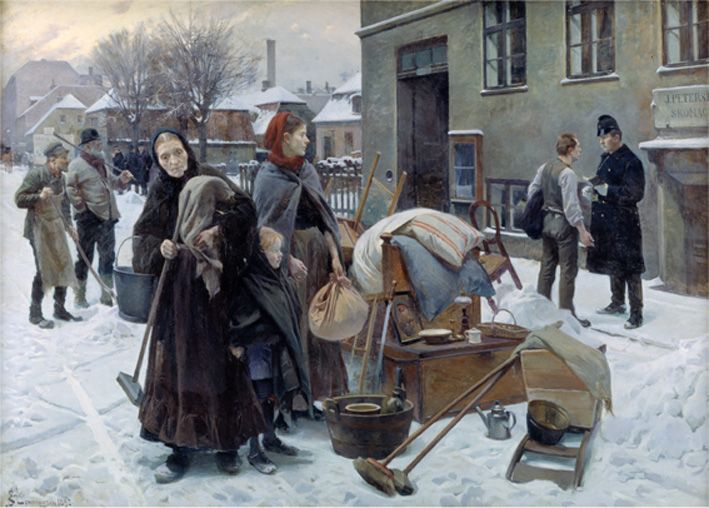With the financial crisis not forgotten, and the EU struggling with the refugee crisis, the welfare systems of most European nations are under extreme pressure.
Fortunately, Denmark has long been recognised as a leader in providing social welfare, with a history of supporting its citizens in times of need.
Well looked after
As any foreigner working here will tell you, taxes in Denmark are high. Even if earning a modest salary, close to half of everyone’s income is taken in tax, much of which goes to support the welfare system.
While this has long been a source of contention, it does mean that the less fortunate are (comparatively) well looked after. As well as free healthcare and education, Danes enjoy one of the largest gross unemployment benefits in the world – despite recent cuts.
Dates back to the 1870s
The welfare system can be seen as a changing and evolving support structure first initiated in the 1870s. Over the next century, more and more additions were added, and by 1974 the basis of the current system was in place.
Following the war with Germany in 1864, Danish society became largely homogenous. Gone were the majority of the German-speaking southerners, leaving Denmark as a country of largely middle class farmers of nearly identical cultural values. As a result, small groups began to surface, each safeguarding a particular aspect of society.
The United Left political party was formed in 1872, initially to provide representation for its largely agricultural constituency. The Danish Women’s Society had been formed a year earlier and the Danish Economic Society was formed in 1873.
Together these and other groups began to push for improved social conditions for workers. By 1873, a law had been enacted prohibiting children under the age of 10 from working in industrial factories. Nearly 20 years later, Denmark’s first old age pension came into effect.
Disability pensions from 1892
By 1892, the first of country’s disability pensions was born, providing economic assistance to those affected by illness. In addition, the members of various associations had half their hospital fees paid for by other members.
By 1907 unemployment insurance associations received public support, and by 1921 the state started contributing to some unemployment funds.
Following a revision of public-funded pensions in the 1930s, the welfare state grew, largely due to the influence of Socialdemokratiet. More power was put into the hands of local councils, which were still funded, though, by thelarger state.
The result of external threats?
While the influence of unions and small associations is not in dispute, some theorists have argued that the development of the welfare state was a response to external threats: namely, the growing power of a united Germany.
In order to thwart the destruction of the national identity should an invasion occur, civil society should be as strong as possible. To this end, all members of society must feel supported and part of the larger whole.
Whether this theory holds water or not is in dispute; however, there is little doubt that the welfare system has become part of the Danish identity. The notion of paying for university, or not receiving government funding to study, is unthinkable to most Danish students – a situation envied by students around the world.
Spending soaring
By the 1960s, Denmark had started spending around 18 percent of its GDP on social welfare and by the 1970s this had ballooned to almost 30 percent. After the first oil crisis of the 1970s, people began to question the economic viability of the system, leading to a series of tightening measures throughout the 1980s and 1990s.
The increase in the number of immigrants has caused many to question the sustainability of the welfare state, with some arguing that its generous provisions are being abused by the family reunification model.
Whether you are in favour of the high-tax/high-support model is a matter for personal reflection. There’s little doubt that the high tax rate stings, yet most people are comfortable in the knowledge that they will be adequately supported should they lose their job or have difficulty finding one.














